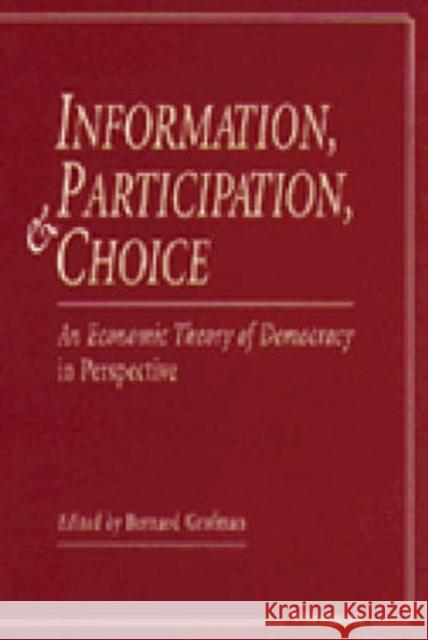Information, Participation, and Choice: An Economic Theory of Democracy in Perspective » książka
Information, Participation, and Choice: An Economic Theory of Democracy in Perspective
ISBN-13: 9780472083435 / Angielski / Miękka / 1995 / 296 str.
Anthony Downs's An Economic Theory of Democracy is one of the handful of books that reshaped political science in the post-World War II period. Information, Participation, and Choice traces the influence of Downs's ideas on subsequent research on voters, candidates, and parties in the United States and elsewhere.
Since their publication in 1957, Downs's seminal ideas -- tweedledum and tweedledee politics and the "rationality" of political ignorance and nonparticipation on the part of voters--have shaped an ongoing debate about how politics actually work. The debate pits a public-choice model inspired by microeconomic precepts against a traditional textbook model that presumes a responsible, informed, and civic-minded citizenry and a set of elected officials motivated by concern for the public interest and policy convictions.
The essays comprising Information, Participation, and Choice, by leading political scientists and economists, provide both a summary of Downs's key theoretical insights and an empirical examination of how well models inspired by Downs accurately describe U.S. political competition for Congress and the presidency.
Bernard Grofman is Professor of Political Science and Social Psychology, University of California, Irvine.











